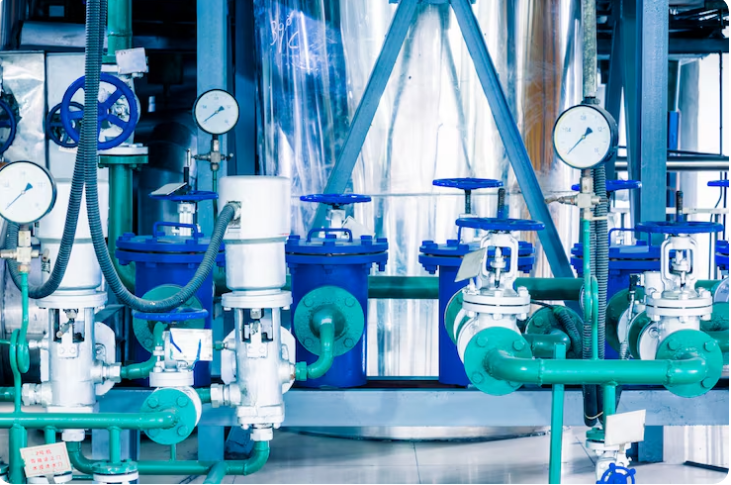Water is one of the most essential resources in modern manufacturing. Whether it is used as a solvent, a coolant, a cleaning agent, or an ingredient in the product itself, water underpins almost every stage of production across countless industries. Yet raw water, drawn directly from municipal supplies, rivers, or wells, rarely meets the stringent quality standards required for industrial processes. Contaminants, dissolved minerals, and impurities can all cause problems that compromise product quality, damage equipment, and increase operational costs.
This is where industrial water treatment plays a pivotal role. By transforming water into a controlled, reliable resource, treatment systems allow manufacturers to achieve efficiency, maintain compliance, and protect both their products and the environment.
Why Water Quality Matters in Manufacturing
Manufacturers depend on water in ways that go far beyond basic supply. In food and beverage production, water quality can affect taste, shelf life, and safety standards. In electronics, even microscopic levels of dissolved minerals can cause defects in semiconductors or microchips. In pharmaceuticals, sterile and ultrapure water is a critical component of both production and cleaning.
Poor water quality can lead to a cascade of problems. Mineral scaling inside boilers reduces energy efficiency and shortens equipment lifespan. Corrosive water can damage pipework and machinery. Microbial contamination can cause blockages, product spoilage, or even safety recalls. The costs of these issues are significant, which is why many manufacturers invest heavily in water treatment solutions tailored to their processes.
Core Processes in Industrial Water Treatment
Industrial water treatment is not a single process but a suite of technologies that can be combined to meet specific needs. Among the most widely used are:
- Filtration – Removing suspended solids, sediment, and particulates that would otherwise clog systems or affect product quality.
- Softening – Eliminating calcium and magnesium ions that cause scale, protecting boilers, heat exchangers, and cooling towers.
- Reverse osmosis – Forcing water through a semi-permeable membrane to remove dissolved salts, organics, and other impurities, producing high-purity water.
- Demineralisation – Using ion exchange resins to remove virtually all dissolved minerals, ideal for applications where extremely pure water is required.
- Disinfection – Employing methods such as UV light, ozone, or chemical dosing to control microbial contamination.
The choice of treatment depends on the source water quality, the requirements of the process, and the environmental or regulatory standards that apply. Often, manufacturers deploy multiple stages of treatment in combination to achieve the right balance of purity, safety, and efficiency.
Supporting Efficiency and Sustainability
Beyond meeting technical specifications, industrial water treatment also supports broader goals of efficiency and sustainability. By optimising water quality, manufacturers can reduce energy use, minimise chemical consumption, and extend the life of equipment. For example, scale-free boilers run more efficiently and consume less fuel. Cooling systems with well-treated water require fewer interventions and last longer.
Sustainability is increasingly a driver for investment in advanced treatment. Water scarcity, stricter discharge regulations, and corporate environmental commitments are pushing manufacturers to recycle and reuse water wherever possible. Treatment technologies make this viable by enabling safe recovery of wastewater streams, reducing reliance on freshwater supplies, and limiting the environmental impact of industrial operations.
Meeting Regulatory and Industry Standards
Manufacturers operate under a complex web of regulations and industry standards that govern water quality and wastewater discharge. Failure to meet these requirements can result in fines, production stoppages, or reputational damage.
For instance, food and beverage producers must comply with hygiene and safety standards that dictate specific water quality parameters. Pharmaceutical manufacturers are guided by pharmacopeia standards that set precise definitions for purified water, highly purified water, and water for injection. Power plants face strict limits on emissions and wastewater discharge.
Industrial water treatment ensures that manufacturers stay compliant, not only by delivering the right water quality for production but also by ensuring effluent is treated before being released back into the environment.
Examples Across Different Sectors
The role of water treatment is perhaps best illustrated through its application across different manufacturing sectors:
- Food and beverage – Consistent, clean water is essential for product safety, flavour, and quality. Treatment prevents scaling in steam boilers, ensures hygiene in cleaning processes, and safeguards the final product.
- Pharmaceuticals – From sterile rinsing of equipment to inclusion in formulations, ultrapure water is vital. Sophisticated systems such as reverse osmosis combined with deionisation are standard.
- Electronics and semiconductors – Even trace minerals or particles can render components unusable. Ultrapure water is required at every stage of production, often involving multiple treatment technologies.
- Power generation – Boilers and cooling towers require strict water quality control to operate efficiently and safely. Scale, corrosion, and fouling can severely impact performance and reliability.
- Automotive and metal finishing – Water is used in paint shops, rinsing, plating, and cooling. Treatment ensures high-quality finishes and reduces rework caused by contaminants.
Each of these examples highlights how closely linked water treatment is to product quality, operational reliability, and overall competitiveness.
The Future of Industrial Water Treatment
Looking ahead, industrial water treatment is set to become even more central to manufacturing strategy. Emerging technologies, such as real-time monitoring and AI-driven optimisation, are helping plants to anticipate issues before they arise. Membrane systems are becoming more efficient and less energy intensive. Closed-loop water recycling is moving from optional to essential in many industries as sustainability commitments intensify.
At the same time, the importance of water stewardship is growing. Manufacturers are expected not just to treat water for their own purposes, but to act as responsible custodians of the resource for the wider community. This means investing in technologies that reduce consumption, prevent pollution, and contribute to long-term environmental resilience.
Conclusion
Industrial water treatment is not a background utility; it is a strategic enabler of modern manufacturing. It ensures product quality, protects critical assets, improves efficiency, and supports sustainability. As industries evolve and environmental pressures mount, the ability to manage water responsibly will remain a cornerstone of successful, forward-thinking manufacturing operations.

